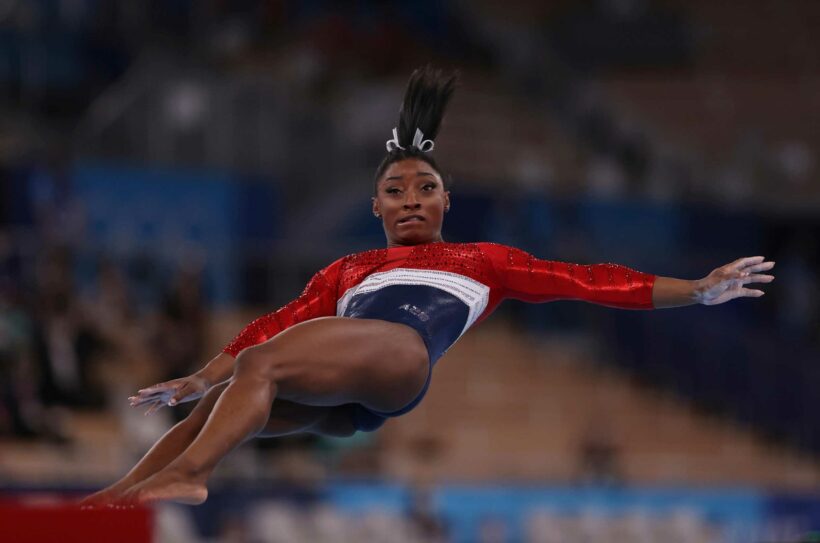More On:
simone biles
Teen gymnast is now best U.S. hope for individual all-around gold
Selfish . . . or selfless — commentators on Simone Biles
Ronda Rousey has harsh words for Simone Biles’ Twitter haters
‘We are rooting for you’: Michelle Obama sends message of support to Simone Biles
Simone Biles shocked the world when she announced she would be not be competing in two Olympic finals due to mental health issues. Several have deemed her psychological state as the “twisties.” But what is this phenomenon that is currently rampant in gymnastics?
Biles, 24, told reporters shortly after her exit that she was “having a little bit of the twisties.” Several athletes and gymnasts have described “twisties” as a mental block that affects physical performance.
According to the BBC, in gymnastics, the twisties can cause someone to lose their sense of space and dimension as they’re in the air. This causes them to lose control of their body and they may perform extra twists or flips that they hadn’t intended to do. Sometimes, the person may find themselves unable to land safely on the floor. The strange occurrence can happen to any gymnast even if they’ve done the same routine over and over again without issue.
Biles seemed to be disorientated while performing a vault during Tuesday’s final and she ultimately stumbled when she landed. But she’s not alone.
British artistic gymnast Claudia Fragapane competed at the Rio Olympics in 2016 where she fell on the balance beam. This past April, Fragapane again fell following a mental block and suffered a head injury that forced her to miss the cut for the individual all-around final in Tokyo.
Fragapane, 23, explained to the BBC that she felt Biles’ pain and could “understand exactly how Simone was feeling.”
The Bristol native continued, “[Biles] has got a lot of weight on her shoulders. Everyone thinks that she is just going to be absolutely out of this world and perfect and she’s not human. But actually she is human, and I think the pressure just got too much.
“It’s really dangerous if you doubt yourself a little bit, or you find it really hard, you can really really hurt yourself. I’ve been in her shoes and I ended up hurting myself,” she added.
Former athlete and now a gymnastics coach from Birmingham, Ala., Christina Myers told the BBC that the twisties can occur “when your brain and body disconnect.”
“Imagine skydiving and your parachute won’t open,” she explained. “Your body starts adding extra twists and flips to the skill you’re supposed to be doing, and it can affect even the skills that feel as routine as walking to an elite gymnast. Your brain wants nothing more than to perform the intended skill correctly, but your body feels like it suddenly has a mind of its own.”
Myers reiterated, “Because the twisties are mainly psychological, the harder you try to push through, the harder the twisties push back.”
Share this article:
Source: Read Full Article



